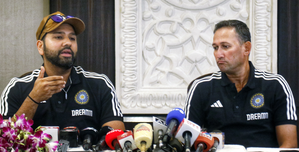Lucknow : Prime Minister Narendra Modi will lay the foundation stone for the state university named after Raja Mahendra Pratap Singh, a prominent freedom fighter and Jat icon, in Aligarh on September 14.
The move is aimed at winning over the Jat population which accounts for around 17 per cent of the electorate in 12 districts of western UP region.
Incidentally, Raja Mahendra Pratap was also an MP, winning the Second Lok Sabha elections in 1957, when he relegated future Prime Minister Atal Bihari Vajpayee to the fourth place.
Chief Minister Yogi Adityanath will be visiting Aligarh on Wednesday to take stock of the preparations for the Prime Minister’s visit.
According to Principal Secretary, PWD, Nitin Ramesh Gokarn, the construction of the university will take at least 24 months from the date when its foundation would be laid.
The university is, therefore, expected to be ready by September 2023.
It will come up in Lodha and Musaipur village of Kol tehsil in Aligarh district over an area of more than 115 acres.
The state government has already allocated an initial budget of over Rs 101 crore for the purpose.
At present, the Aligarh division has only one state university — the Dr B.R. Ambedkar University in Agra.
The Yogi Adityanath government had decided to establish a state university in the name of Raja Mahendra Pratap Singh in Aligarh in 2019 after some right-wing outfits demanded rechristening the name of the Aligarh Muslim University (AMU) in the name of Singh, who is believed to have donated land for the iconic central university which was initially founded as Muhammadan Anglo Oriental (MAO) College by Sir Syed Ahmad Khan in 1877. The college was formally transformed into a university in 1920.
According to officials of the PWD, the nodal department for the project, the state government plans to construct a sprawling academic block, an administrative building, a facility centre, health centre, hostels for boys and girls and residential buildings for the academic staff.
Raja Mahendra Pratap Singh (1886-1979), born in a socio-economically influential Jat family of Mursan in Hathras district on December 1, 1886, was a freedom fighter and social reformer.
He studied in Muhammadan Anglo-Oriental College till 1905. He later set up an indigenous technical institute Prem Mahavidyalaya in Vrindavan in 1909, an initiative that played a crucial role in getting him nominated for the Nobel Peace Prize in 1932.
Raja Mahendra, who announced India’s first provisional government from Afghanistan in 1915, spent over three decades out of the country as the British wanted to arrest him. He only returned to India in 1946.
He was elected to the second Lok Sabha from Mathura as an Independent candidate, garnering over 40 per cent of the votes and defeating his Congress rival, Chaudhary Digambhar Singh, by nearly 25,000 votes. On fourth position was Bharatiya Jan Sangh candidate Atal Bihari Vajpayee, who secured around 23,000 votes, or 10 per cent.






Related Posts
Eknath Shinde compares Uddhav Thackeray’s change in political stance with ‘chameleon changing colours’
PM Modi will free Telangana of corruption: HM Amit Shah
Trying to get stringent punishment for killer, says K’taka CM